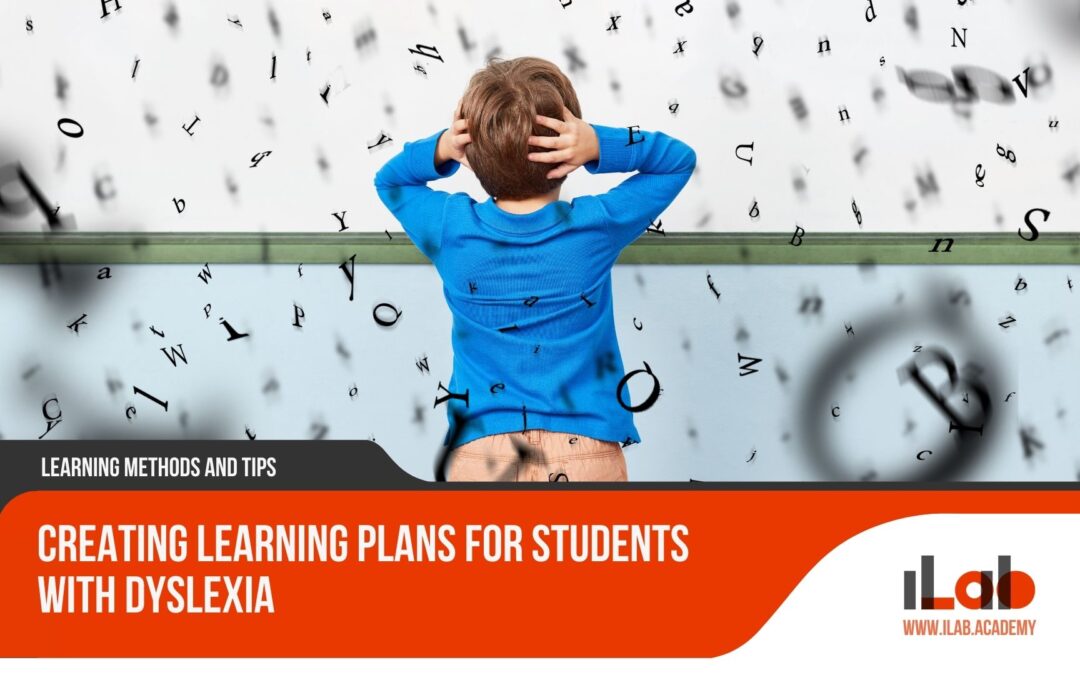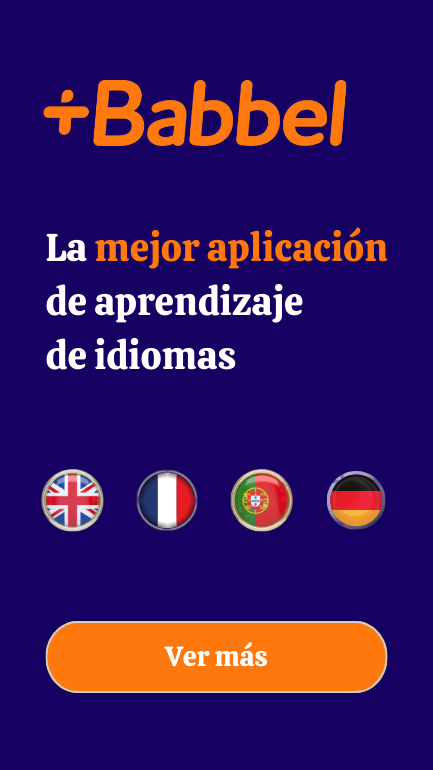Table of contents
In the intricate dance of human interaction, the mastery of expressive and receptive language skills plays a crucial role. As we embark on a scholarly exploration of the dichotomy between these two fundamental types of communication, it is essential to recognize not only their individual significance but also the nuanced interplay between them. Expressive language allows individuals to articulate their ideas, desires, and emotions, whereas receptive language is the cornerstone of understanding and interpreting the messages conveyed by others. As we dissect the developmental trajectory of these skills, consider the impact of technology and culture, and probe the silent yet powerful world of nonverbal cues, one must remain cognizant of the profound implications these capacities hold for personal and professional relationships. The ensuing discourse aims to illuminate the subtleties of this subject, inviting a contemplation of the ways in which these language skills shape our interactions and indeed, our very understanding of the world around us.
Key Takeaways
- Expressive and receptive language skills are two core abilities that are critical for communication and understanding.
- Language skills develop naturally in childhood, with specific milestones and stages of acquisition.
- Nurturing language skills in multilingual environments can be complex, but it also offers unique benefits.
- The digital age and modern communication methods have a significant impact on language skills, requiring adaptation in education and communication strategies.
Fundamentals of Expressive and Receptive Language
Understanding the fundamentals of expressive and receptive language is essential, as these core language abilities are the building blocks of human communication and critical to our ability to interact and comprehend others effectively. Expressive language refers to the ability to convey thoughts, feelings, and information to others. This encompasses not only the words we choose but also the way we construct sentences, the use of grammar and syntax, and the nonverbal cues that accompany spoken or written communication. Individuals use expressive language when they talk, gesture, write, or engage in any form of self-expression that communicates their intent to another.
Receptive language, on the other hand, involves the comprehension of this communication. It is the ability to understand what is being said to us, to process spoken or written language, and to interpret the nonverbal signals that often accompany words. Receptive language skills enable us to follow instructions, grasp the nuances of a conversation, and respond appropriately to social cues. These skills are constantly at work, whether we are listening to a lecture, reading a book, or engaging in dialogue.
Both expressive and receptive language skills are fundamental to effective communication and are interdependent. Strong receptive language abilities can enhance expressive skills by providing a richer vocabulary and a better understanding of language structures, while expressive language proficiency can lead to more nuanced and effective communication, fostering better comprehension in listeners. For individuals to participate fully in social, educational, and professional contexts, they must develop and refine these language abilities throughout their lives.
The Developmental Journey of Language Skills
The acquisition of language skills in children is a complex, dynamic process marked by several developmental milestones that occur from infancy through adolescence. Infants begin by responding to sound and gradually start to recognize the speech patterns and rhythms of their native language. As they grow, children embark on a fascinating journey of language acquisition, progressing from babbling to forming words and eventually constructing complex sentences.
During this journey, the following milestones are particularly noteworthy:
- Pre-linguistic Stage: Before speaking, infants engage in pre-linguistic communication, which includes crying, cooing, and babbling. This stage lays the groundwork for later speech and language development.
- First Words: Around the age of one, most children begin to say their first words. This milestone is a major leap in expressive language as it represents the child’s initial ability to verbalize concepts and needs.
- Vocabulary Explosion: Between the ages of two and six, children experience a rapid expansion of vocabulary, often referred to as a “vocabulary explosion.” This period is crucial for both receptive and expressive language skills, as children learn new words and grammar rules at a remarkable pace.
It is important to recognize that while these milestones are typical, individual children may exhibit significant variability in their developmental timelines. Factors such as exposure to language, parental interaction, and any underlying neurological or cognitive issues can influence the rate and manner in which language skills develop. Professionals and caregivers should be attentive to a child’s language milestones to ensure they are on track and to identify any areas where intervention may be needed to support healthy language development.
The Multilingual Dimension: Receptive and Expressive Skills
Building upon the foundational milestones of language development in children, it becomes crucial to consider how this trajectory is influenced by the presence of multiple languages in a child’s environment. Multilingual settings present a unique set of challenges and benefits that shape receptive and expressive language skills. Children raised in such environments may develop the ability to understand (receptive) and use (expressive) more than one language, an ability known as multilingualism.
Multilingual children often learn to differentiate between languages at a young age, determining which language to speak with whom. This linguistic awareness enhances cognitive flexibility, but it can also temporarily slow down language production as the child selects the appropriate language for the context. However, this should not be mistaken for a language deficit; rather, it is a complex cognitive task indicative of advanced language processing abilities.
The interplay between receptive and expressive language skills in multilingual individuals can vary. Some may have higher levels of comprehension (receptive skills) in one language but prefer to express themselves (expressive skills) in another. This imbalance is normal and may shift over time or with changes in the language environment.
For educators and parents, it is important to recognize that the development of expressive and receptive skills can be asynchronous in multilingual children. Patience and support are key as these children navigate and master the complexities of their multilingual landscapes. Encouragement in all languages spoken, without pressure to choose one over the others, supports a healthy linguistic development that will serve as a robust foundation for future learning and communication.
The Digital Influence on Language Acquisition and Use
In an era where digital communication is ubiquitous, it stands to significantly reshape the way individuals acquire and utilize both expressive and receptive language skills. The immersion of society in digital platforms, from social media to messaging apps, has created an unprecedented environment for language interaction. These virtual spaces facilitate a unique form of dialogue that often blends traditional language with digital jargon, emojis, and multimedia elements.
The digital landscape impacts language skills in several ways:
- Accelerated Language Evolution: Digital media has hastened the creation of new words and phrases, allowing them to spread and be adopted quickly across different cultures and languages.
- Shifting Communication Norms: The brevity and immediacy of digital communication have cultivated a preference for concise and immediate responses, influencing how language is both understood and expressed.
- Enhanced Exposure to Multilingual Content: The internet provides exposure to a vast array of languages and dialects, which can positively affect receptive language skills by familiarizing users with diverse linguistic patterns.
However, this digital dominance brings challenges as well. There is a growing concern that the depth and quality of language acquisition might suffer due to the often-superficial nature of digital interactions. The lack of nuanced context cues and reliance on written text over verbal cues can impede the full development of expressive and receptive language abilities. Therefore, while digital tools offer innovative ways to engage with language, it is essential to balance them with rich, face-to-face communication and traditional literacy experiences to support comprehensive language development.
Cultural and Societal Impacts on Language Learning
Cultural norms and societal expectations play a pivotal role in shaping both the development and the esteem of language skills within various communities. The cultural context in which individuals learn and use language heavily influences not only the linguistic structures they master but also the communicative behaviors they adopt. Societal values often dictate which language skills are prioritized and in what manner they are cultivated. For instance, some cultures may emphasize the ability to speak eloquently and persuasively, thus fostering stronger expressive language skills, while others might value the capacity to listen and understand, thereby enhancing receptive language capabilities.
The approach to teaching and learning language is also deeply rooted in cultural practices. Education systems across the world vary in their methods, some employing rote memorization while others encourage interactive and immersive experiences. These differences reflect underlying cultural beliefs about the nature of learning and the importance placed on various language skills.
Furthermore, multilingual societies face unique challenges and opportunities in language learning. Bilingual or multilingual individuals often develop distinct skills that allow them to navigate different cultural expectations and communication norms. The societal valuation of different languages can also affect motivation and proficiency. In communities where multiple languages are valued equally, individuals may be more likely to develop a balanced skill set in both expressive and receptive language across languages. Conversely, in societies where there is a clear hierarchy of languages, individuals may prioritize development in the more esteemed language, potentially at the expense of their mother tongue or other languages.
Interpreting Nonverbal Signals in Communication
While cultural and societal contexts significantly shape verbal language skills, the ability to interpret nonverbal signals is equally essential in enriching communication across diverse settings. Nonverbal communication encompasses a variety of signals that convey meaning without the use of spoken language. These signals are integral to the receptive language skills that allow individuals to interpret and understand the intentions and emotions of others.
Interpreting nonverbal signals requires attentiveness to several forms of expression:
- Facial expressions: These are among the most universal forms of nonverbal communication. A smile or a frown can convey emotions across different cultures, though there are nuances in how emotions are expressed and interpreted.
- Body language: Posture, gestures, and movement can reveal a person’s attitude and feelings. For instance, crossed arms might indicate defensiveness, while an open stance may suggest openness and approachability.
- Eye contact: The amount and type of eye contact can vary significantly across cultures but generally plays a crucial role in regulating conversations and signaling interest or dominance.
Understanding these nonverbal cues is vital for effective communication. It allows individuals to respond appropriately, build rapport, and establish trust in both personal and professional interactions. Moreover, in situations where verbal communication is hindered—such as in noisy environments or when language barriers exist—nonverbal signals become even more critical.
For those who desire a deeper understanding of communication, recognizing the subtleties of nonverbal cues can lead to more nuanced interactions and a richer comprehension of the unspoken elements that underpin human connection. These skills are not only innate but can be refined through observation, empathy, and practice.
Cognitive and Emotional Considerations in Language Expression
Cognitive processes and emotional well-being significantly influence an individual’s ability to express and comprehend language, shaping communication effectiveness across various contexts. The intricate interplay between cognition and emotion underlies the mechanics of how we convey and interpret messages. Cognitive functions such as attention, memory, and executive functioning are integral to language processing, dictating the ability to select appropriate words, construct coherent sentences, and understand complex grammar. Deficits in these areas can lead to difficulties with both expressive and receptive language skills, potentially impeding effective communication.
On the emotional spectrum, psychological states play a pivotal role in linguistic expression and perception. Emotional well-being can color language use, impacting the tone, pace, and volume of verbal communication. Positive emotions tend to enhance verbal fluency and the richness of vocabulary, while negative emotions might restrict expressive capabilities or lead to disorganized speech. Furthermore, emotional intelligence, the capacity to perceive and manage emotions, contributes to the interpretation of subtle linguistic cues, such as sarcasm, humor, or sincerity, which are essential for nuanced understanding and response.
The reciprocal relationship between cognitive and emotional components emphasizes the need for a holistic approach when addressing language development and remediation. It is crucial for educators, therapists, and caregivers to consider these cognitive and emotional aspects when fostering language skills, as they can significantly affect an individual’s learning trajectory and overall communicative competence. Tailoring strategies to support cognitive development and emotional resilience can thus enhance both expressive and receptive language abilities, ultimately leading to more effective and fulfilling interactions.
Language Skills Enhancement for Adult Learners
Mastering both expressive and receptive language skills is a dynamic and continual process for adult learners, offering numerous opportunities for personal advancement and enhanced professional communication. As adults, the acquisition and refinement of language skills can be particularly impactful, influencing career trajectories, social interactions, and even cognitive health. To this end, it is essential to approach the enhancement of these skills with strategic and tailored methods.
For adult learners aiming to improve their language abilities, the following strategies are vital:
- Active Engagement: Adults should seek out opportunities to actively use language in diverse contexts, including professional settings, social gatherings, and digital platforms. This could involve joining discussion groups or participating in workshops that encourage speaking and listening.
- Continuous Education: Leveraging formal education opportunities, such as language courses or online learning platforms, can provide structured guidance and practice in both expressive and receptive skills.
- Personalized Practice: Tailoring practice to personal interests and needs can enhance motivation and retention. This might include reading books in the target language, watching films with subtitles, or using language learning apps that adapt to individual proficiency levels.
Enhancing language skills as an adult requires conscious effort and dedication. It involves immersing oneself in environments where communication is necessary and being open to feedback and self-assessment. Whether for professional development or personal enrichment, improving expressive and receptive language skills can open doors to a richer, more connected experience of the world, emphasizing the importance of communication in all aspects of adult life.
Recognizing and Addressing Language Challenges in Adults
Language disorders such as aphasia, which frequently affect adults, can significantly impair one’s ability to communicate effectively and diminish overall quality of life. Aphasia, often resulting from stroke or brain injury, can disrupt both expressive and receptive language skills, making it challenging for individuals to articulate thoughts or understand spoken words. Recognizing these challenges is critical for timely intervention and support.
Adults facing language difficulties may exhibit signs like struggling to find the right words, constructing incomplete sentences, or having trouble following conversations. These symptoms can lead to frustration and social isolation if not properly addressed. It is essential that family members, caregivers, and employers are aware of these indicators so they can provide the necessary assistance or seek professional help.
Once a language disorder is identified, a range of management strategies can be employed. Speech-language therapy is a cornerstone of treatment, focusing on improving communication abilities through personalized exercises and the use of assistive technologies. Therapists may also train individuals to use alternative nonverbal communication methods, such as gestures or pictograms, to facilitate interaction.
Moreover, support groups can offer a sense of community and understanding, while also sharing practical advice and coping strategies. In the workplace, employers can contribute by creating an accommodating environment, which might include providing written materials or allowing extra time for tasks requiring communication.
It is crucial for society to understand and support adults with language challenges. Empathy, patience, and appropriate interventions can make a significant difference in helping individuals navigate their daily lives and maintain their sense of dignity and independence.
Frequently Asked Questions
How Do Expressive and Receptive Language Skills Affect an Individual’s Ability to Engage in Conflict Resolution and Negotiation?
Expressive language skills enable individuals to articulate their perspectives and needs clearly during conflict resolution and negotiation, while receptive language skills are crucial for understanding the viewpoints and concerns of others. Together, these competencies facilitate effective dialogue, promote empathy, and assist in finding mutually agreeable solutions, thereby enhancing the overall process of resolving disputes and reaching consensus.
Are There Specific Brain Exercises or Activities That Can Disproportionately Improve Receptive Language Skills Over Expressive Ones, or Vice Versa?
Certainly, tailored brain exercises can enhance receptive or expressive language skills selectively. For instance, activities like listening comprehension tasks can specifically improve receptive abilities, whereas storytelling or journaling can bolster expressive skills. However, the effectiveness of such exercises may vary individually, and it’s often recommended to combine different types of training to achieve a balanced advancement in both areas of language proficiency.
How Do Sleep Patterns and Overall Sleep Quality Impact the Development and Maintenance of Expressive and Receptive Language Skills?
Sleep patterns and overall quality significantly influence both the development and maintenance of language skills. Adequate sleep facilitates cognitive functions critical for learning and processing new information, thereby enhancing language acquisition and retention. Conversely, poor sleep can impair the brain’s ability to comprehend and articulate language effectively. Therefore, ensuring proper sleep is essential for the optimal functioning of expressive and receptive language abilities.
In What Ways Can Music and Rhythm Therapy Be Used to Enhance Both Expressive and Receptive Language Abilities?
Music and rhythm therapy can significantly augment both expressive and receptive language abilities by tapping into the brain’s auditory processing and motor areas. Rhythmic patterns and melody can improve memory, attention, and the ability to mimic sounds, aiding in language acquisition and expression. This therapeutic approach is especially beneficial in enhancing phonological awareness, pronunciation, and language fluency, making it a valuable tool for both initial learning and ongoing language development.
How Do Hormonal Changes, Such as Those Experienced During Puberty or Menopause, Potentially Influence an Individual’s Language Skills?
Hormonal fluctuations during life phases such as puberty or menopause may affect language skills. These changes can influence cognitive functions and emotional states, potentially impacting one’s ability to articulate thoughts (expressive language) and comprehend spoken or written communication (receptive language). However, individual experiences vary widely, and research into hormonal impacts on adult language abilities continues to evolve, highlighting the need for further studies in this area.
Conclusion
In conclusion, the mastery of expressive and receptive language is a cornerstone of effective communication, shaped by an intricate interplay of developmental, cognitive, and environmental factors. As society navigates the digital era’s evolving linguistic landscape, a nuanced understanding of these skills becomes increasingly pertinent. Embracing the challenges and opportunities that arise within multilingual contexts and nonverbal dynamics is essential. Continuous engagement in language enhancement can facilitate communication proficiency, crucial for both personal growth and professional advancement.














